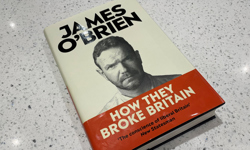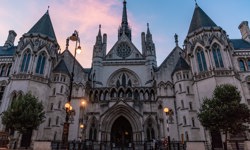
Responding to reports published in the Manchester Evening News and HoldTheFrontPage that a senior police officer publicly acknowledged that he does not want his force to focus on responding to legitimate questions by journalists on the basis that ‘they’re going to write what they want to write anyway’, the Society has today expressed grave concerns for press freedom and the public’s right to know.
Ian Murray, Executive Director of the Society of Editors said: “Attempts by government officials and public bodies to control the flow of information is nothing new however, in the past few weeks, we have seen overt and deeply worrying attacks on the media’s ability to fulfil its function on a scale of which we have not seen previously.
“From attempts by Number 10 and elected officials to bypass the mainstream media and to determine who gets to report the news, to senior police officers that do not wish their team to focus on responding to legitimate questions by journalists where matters of safeguarding have been raised by other officers, public officials are increasingly taking it upon themselves to determine what should and should not be reported.
“It is the Society’s belief that these overt attempts to clampdown on what is being reported and by whom, are resulting in the public being knowingly deprived of vital information that it is entitled to in a democratic society.
“Moving forward the Society will not only be seeking greater assurances from government and public officials that they recognise the intrinsic and vital role that the media plays in relation to the public’s right to know but we will be openly calling out attacks on press freedom wherever they take place.”
The Society’s comments come after it was reported in the Manchester Evening News that a Chief Superintendent at Greater Manchester Police publicly acknowledged at a meeting of the region’s police and crime panel that he did not wish his team to focus on responding to the paper as they ‘are going to write what they want to write anyway’.
Manchester Evening News politics and investigations editor Jen Williams criticised the force over its response to the issue of a new £29m computer system which has been beset with problems after refusing to answer questions despite the paper receiving numerous approaches from serving officers raising concerns ranging from lost records to delayed investigations, safeguarding issues, crime backlogs and soaring costs.
In a letter to the Chief Constable of Greater Manchester Police Ian Hopkins QPM, the Society sought assurances that officers in Manchester not only recognised the vital role that journalists play but were familiar with College of Policing guidelines that stipulate that a vital working relationship between the police and the media enables the public greater insight into what the police are doing and why they are doing it.
The Society wrote: “…a successful working relationship between the police and the media service is vital and it is deeply worrying that a senior officer such as Davies does not appear to recognise the legitimate role that journalists play in asking questions of public bodies and officials.
“The Society is deeply concerned that such comments are in direct contradiction to the vital role of journalists that the College of Policing purports to support.”
While the Society said that it recognised the pressures that officers are under and the need to prioritise workload such flippant comments by a senior officer had the effect of undermining public confidence and legitimising attacks on the media.
The letter went on: “It is unhelpful for a senior officer to suggest that answering the questions of reporters should not be a focus for his team. More worryingly, the inference that journalists will write what they wish to regardless of the facts is both inaccurate and grossly offensive. The whole point of journalists asking questions is not only to provide a clearer account and context to an issue but also to avoid inaccuracies and to provide the subject of an article with a fair opportunity to respond to concerns and criticism.
“As I hope you will appreciate, a Chief Superintendent openly criticising a newspaper for performing it’s role not only works to undermine public confidence and trust in the force’s willingness to be scrutinised but it also has an insidious effect on the value placed by other, less senior, officers on the vital function that journalists perform on behalf of the public. Ultimately, attempts to control the flow of information and the refusal to engage and answer the questions of the media only results in the public being deprived of information that it is entitled to in a democratic society.”
The letter can be read in full here.












